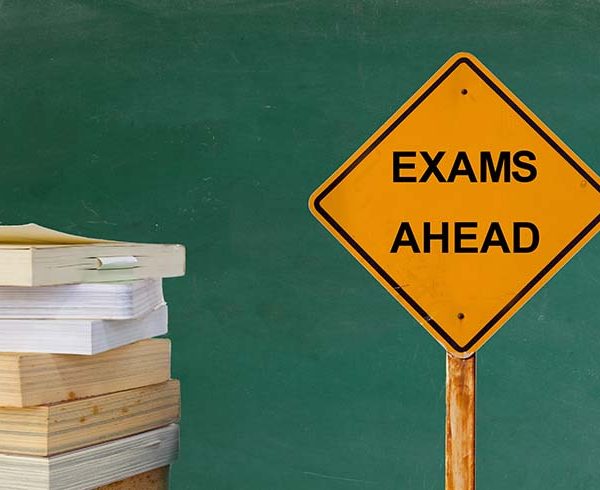

We farewelled our Senior College students from normal classes last Wednesday. Many of these students are facing their final exams and this can prove stressful for the students and their families. For our younger students, there may be varying levels of stress as they complete final assessments.
Parentline Helping Kids Cope With Exam Stress | Parentline gives some information on exam stress, which may be useful at this time.
What is exam stress?
Stress can be defined as the adverse reaction people have to excessive pressure or other types of demands placed on them.
What can you expect to see if your child has exam stress?
When someone is faced with increased pressure (in this case at exam time) their body can go into a ‘fight or flight’ response which releases increased amounts of adrenalin into the body. This can lead to various symptoms including:
- Feeling cranky and irritable
- Indecisiveness and/or confusion
- Problems with going to sleep or getting up in the morning
- Strongly beating heart, sweating
- Mild chest pains, back pains, nausea, trembling, shortness of breath
- Minor stomach upsets
- Possible skin breakouts
- Teeth grinding, nail biting and fidgeting
- Constipation or diarrhoea
- Going blank in the exam
- Feeling inadequate, negative self-talk, blaming.
What can parents do about exam stress?
One of the best things parents or carers can do if their child is experiencing exam stress is to try to be as supportive and tolerant as possible.
Effective study and learning habits
Parents can help reduce the exam stress of their child by helping them establish effective study and learning habits:
- Have realistic expectations, don’t push too hard
- Be constructive and positive
- A quiet place to study without distractions
- Encourage your child to find out exactly what the test involves – are there past test papers they can look at to help them understand what to expect?
- Help them to plan their study schedule early on so they have sufficient time to study. It can be helpful to develop a clear, realistic plan of what they want to cover in each study session. Can they break it down into small chunks?
- Remind your child to take a short rest and move around in between each part of their study
- Offer help sometimes. It can be useful having someone to listen or practise with.
Healthy sleeping and eating habits
- Encourage your child to stick to a routine of going to bed at a reasonable time. They need to avoid late night TV shows or movies
- Motivate them to eat regularly and make time to have fun and exercise
- Help them to cut back on coffee or any other stimulants which they may be using, as these can increase agitation. Encourage them to drink lots of water instead
- Remind them to take time out when they eat, rather than carrying on with study
- Encourage them to eat fresh fruit, veggies, cereals, grains, nuts and protein – they are all good for the brain and blood sugar levels
- Encourage them to eat when they get hungry. This keeps blood sugar and hydration levels steady
- Avoid junk food if possible. It will bring a sudden sugar high which will fall away quickly, leaving a person feeling tired.
Relaxation ideas to help your child cope with exam stress
- Encourage them to go out for a walk, run or do some other exercise they enjoy
- Teach them relaxation techniques such as mindfulness, listening to some gentle music, getting them to lie down, closing their eyes and taking a deep breath while visualising a calming scene such as a deserted beach
- Help your child to develop a positive mindset by encouraging them to visualise success – this can really help with self-confidence
- Avoid rushing on the day of the exam by organising and packing everything they need to take with them the night before.
Ideas for exam day
Talk about these ideas before exam day so as not to add to anxiety levels.
Suggest to your child that they:
- Eat a good and light breakfast – something that will sustain them and help them concentrate
- Be organised the night before and try to arrive at school or the exam venue early
- Go to the toilet before the exam starts
- Keep away from people who may agitate them before the test or may say unhelpful, anxiety-provoking comments
- Take time to slow their breathing and relax when they first sit down in the exam room.
We wish all students the very best as they prepare for exams and complete final assessments.
Mrs Tracey Rogers
Deputy Principal Pastoral Wellbeing


